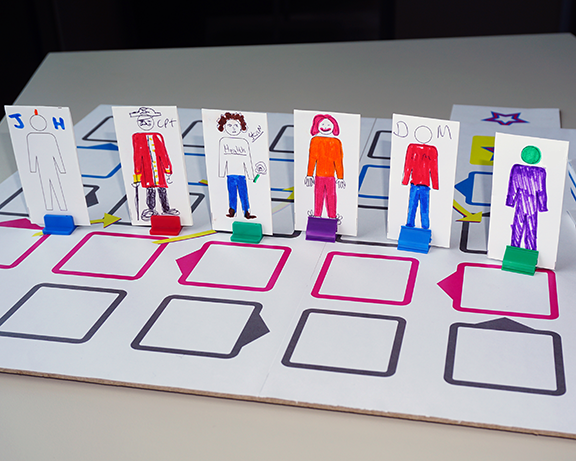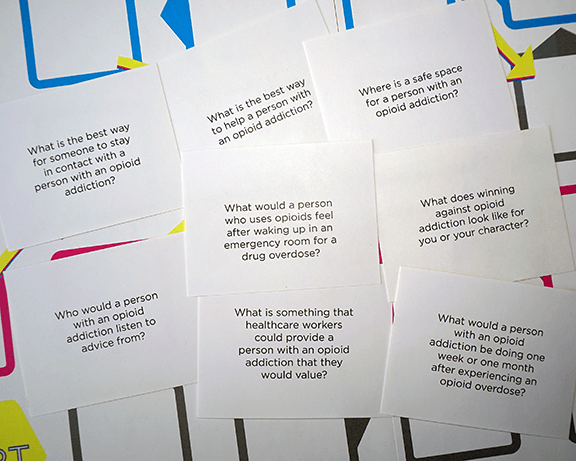3 minute read

Gamification of a traditional research method was used to engage participants in a familiar and highly participatory atmosphere.
Although Project POINT staff engaged hundreds of patients over two years, not every patient was ready for recovery after being approached in the emergency department. Also, the program has had a difficult time staying connected with these individuals once they leave. To address these challenges, Project POINT leaders approached Research Jam (AKACHeP’s Patient Engagement Core [PEC]) for help with developing effective, targeted, communication strategies to increase patient connection to and maintenance in care.
“Whatever group of fixes there are for this crisis, they will have to be addressed with people who have lived it leading the way.” – Project POINT founder Krista Brucker, MD
Research Jam planned an engagement session for former opioid users at a local community service center. To increase engagement and decrease potential stigma, Research Jam adapted a human-centered design research activity called Experience Mapping. Human-centered design research methods are distinct from conventional research methods because the tools leverage study participants’ expertise in ways that exceed standard expectations for study participation. Traditionally, Experience Mapping is an exploratory activity in which participants are asked to draw out their movements and interactions during a specific experience (e.g. time spent in the hospital after an overdose). An Experience Map can illuminate the holistic highs and lows people experience during an event.
Research Jam created a novel twist of the traditional Experience Mapping activity—a gamified version—with the intention of creating a familiar, engaging, and highly participatory atmosphere. An open, defined space was created for each participant to share perspectives and experiences without hesitation by incorporating character selection and discipline facilitators, i.e., the turn-based format of board games and the interactive elements of party card games.

Question cards were used to guide discussions and facilitate the session.
“I saw many of the same themes that I expected to hear based on my experience in this field. However, the PEC was able to pull out nuances that I had not heard before,” said primary investigator Dennis Watson, PhD, Associate Professor of Social and Behavioral Sciences at Indiana University School of Public Health.
Project POINT founder Krista Brucker, MD, Department of Emergency Medicine, Indiana University School of Medicine, stressed the importance of engaging opioid users, “The session was such a good reminder that so much of what we (society, healthcare, criminal justice, child protection) have messed up on this front could have been avoided if we had spent more time listening before trying to fix it. Whatever group of fixes there are for this crisis, they will have to be addressed with people who have lived it leading the way.”
